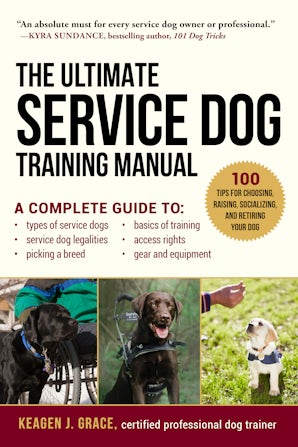Dog Training For Dogs: A Step-by-Step Guide to Raising a Well-Behaved Animal
Important Canine Educating Tips for Raising a Well-Behaved Buddy
Reliable dog training is foundational to establishing a harmonious and mannerly companion. Necessary strategies such as very early socialization, the establishment of constant commands, and the application of favorable support can substantially influence a pet dog's actions and total personality. Additionally, comprehending canine habits is critical for customizing training approaches that resonate with individual canines. By cultivating a participating setting amongst relative and sticking to an organized routine, owners can improve their training efforts. The intricacies of these methods advantage even more exploration to totally value their effect on fostering a well-adjusted canine companion.
Understanding Pooch Habits

Additionally, socialization plays a vital duty in forming a canine's behavior. Direct exposure to different environments, individuals, and various other animals aids dogs establish confidence and lowers the chance of fear-based reactions. Early socializing is particularly crucial, as experiences during the important advancement period significantly affect a canine's long-term habits.
In addition, comprehending the concepts of learning concept-- such as favorable reinforcement, adverse reinforcement, and punishment-- can boost training effectiveness. Pet dogs are more probable to duplicate behaviors that produce favorable outcomes. Using consistent, reward-based training techniques cultivates a relying on relationship between the pet dog and its instructor.

Basic Commands to Educate
Educating fundamental commands is an important structure for efficient canine training and interaction. Dog Training For Dogs. These commands not just help develop a clear line of communication in between you and your pet dog, but they additionally promote safety and etiquette in numerous circumstances
Beginning with essential commands such as "Sit," "Stay," "Come," "Down," and "Heel." Each command offers a specific objective; for instance, "Sit" can aid calm a fired up canine, while "Come" is vital for ensuring your pet returns to you when called.
When presenting a new command, utilize a constant and clear tone. Progressively increase the duration and distance as your pet becomes a lot more skillful.
Consistency is essential; technique commands daily to strengthen understanding, and ensure all member of the family make use of the same commands to prevent complication. Bear in mind that patience is required during this procedure, as different canines might find out at different speeds. Developing these basic commands promotes an unified partnership and establishes the stage for advanced training in the future.
Favorable Support Techniques
Positive reinforcement methods are very effective methods for encouraging preferred habits in pets. This training strategy entails rewarding your canine for showing actions you wish to reinforce, consequently raising the probability of those actions being duplicated. Incentives can take various kinds, consisting of treats, praise, or playtime, and should be tailored to what motivates your canine most.
Timing is vital in favorable reinforcement. Rewards need to be offered promptly after the desired habits strikes develop a clear association. As an example, if you desire your pet to rest on command, award them as soon as they rest, ensuring they understand what activity is being strengthened.
Uniformity is one more important part. Dog Training For Dogs. Utilize the same commands and rewards each time to prevent confusion. Progressively, you can eliminate deals with for even more intermittent incentives, such as verbal appreciation, to maintain the habits without relying on consistent outside support
Furthermore, read here it is essential to continue to be client and avoid punishment, as negative reinforcement can lead to fear and anxiety, eventually hindering training efforts. By implementing positive support techniques, you will certainly foster a relying on partnership with your pet dog, causing a well-behaved friend.
Socialization and Communication
Socializing and interaction are basic aspects of a pet dog's growth that complement favorable support techniques. Very early direct exposure to diverse atmospheres, individuals, and other pets is important for fostering a well-adjusted family pet. This procedure helps pet dogs create confidence and versatility, reducing the probability of behavioral problems such as concern or aggression.
Begin socialization throughout the essential developmental home window, typically between 3 and fourteen weeks old. Present your young puppy to various stimuli, consisting of different sounds, sights, and appearances. Register in pup classes or set up monitored playdates with various other pets to encourage positive interactions.
As pet dogs expand, remain to reveal them to diverse experiences. Tasks such as visits to parks, pet-friendly stores, or community occasions can improve their social abilities and comfort degrees in strange setups.
Constantly check interactions to ensure they are worry-free and favorable. If your pet shows indicators of anxiousness or aggression, calmly reroute them and permit gradual direct exposure at a comfy rate. Through consistent socializing and communication, you lay the groundwork for a balanced, well-behaved friend efficient in prospering in diverse social situations.
Consistency in Training
Developing consistency in training is vital for effective interaction between a pet dog and its owner. Pet dogs flourish on clear and routine expectations, which aids them comprehend what actions is desired.
Uniformity additionally prolongs past commands; it encompasses the policies developed within the home. If a pet dog is not allowed on the furniture, this policy has to be imposed at all times. like this Combined signals can lead to behavior issues, as the dog may end up being uncertain about what is appropriate.
In addition, all member of the family ought to be on the very same web page regarding training methods and commands. If one individual compensates a behavior while another rebukes it, the pet might become disoriented and nervous.
Final Thought
In conclusion, implementing important canine training suggestions fosters a well-behaved companion. Eventually, these practices grow a trusting connection in between the dog and its family, promoting a harmonious living environment and a well-adjusted canine buddy.
Essential methods such as very early socializing, the establishment of regular commands, and the implementation of favorable support can dramatically affect a pet dog's behavior and total personality. Understanding canine actions is vital for tailoring training approaches that reverberate with individual pets.Recognizing canine habits is important for efficient dog training. Canines are more most likely to duplicate actions that generate find positive results.Positive support methods are extremely reliable methods for encouraging desired behaviors in pets.